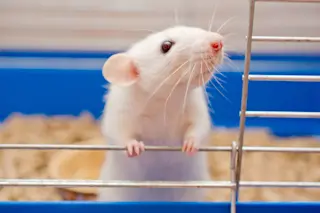Conventional wisdom advocates for rest after suffering an injury. Now researchers have discovered that activity — not rest — helps the brain recover from trauma in mice. The finding suggests that challenging the brain early after damage can speed up healing.
“Lengthy rest periods are supposed to be key to the brain’s healthy recovery, but our study in mice demonstrates that re-engaging the brain immediately after injury can actually be more helpful than resting it,” study lead Randy Bruno, a neuroscientist at Columbia University’s Zuckerman Institute in New York City, said in a statement.
The results were “completely unexpected,” he added.
Bruno started the research hoping to untangle how the brain detects and processes the sense of touch. To find out, the researchers trained thirsty mice to get water by releasing a lever when they felt a pole brush their whiskers in the dark. The team then used optogenetics to ...














